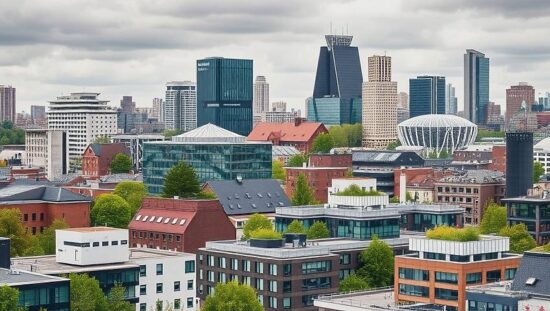In the event of a CDU victory in the upcoming federal election, the party plans to reorient the promotion of private heating systems, primarily focusing on the overall carbon footprint of the relevant building.
According to the Union’s Fraktionsvize Jens Spahn, the current approach cannot remain the same. “The entire CO2 emissions of the house must be the evaluation criterion” he told the business magazine Capital. “Measures like insulating windows or the roof will be promoted if they bring about a reduction in CO2 emissions.”
Spahn also announced that the coalition’s established promotion model, which was intended to encourage the use of heat pumps, would be reworked. “We’re not turning the promotion off overnight, we’re going to adapt it gradually” he said. “The final outcome will depend on the budget situation.”
The CDU’s plan had previously caused unrest in the heating industry and among homeowners, who had feared a complete reversal of the recent novella to the Building Energy Act.
Spahn criticized the promotion model developed by Federal Minister of Economics Robert Habeck (Greens) as counterproductive. “Many people had quickly installed a new oil or gas heating system, out of fear that it would be too expensive otherwise” he said. “Without Habeck’s heating law, we would have sold more heat pumps in the last two years.”
The CDU also plans to change the connection between heating promotion and municipal heat planning. “I think the legally linking of the two with the heating law was the biggest construction flaw” the CDU politician said. “We will also overturn this. Heat planning is not feasible for most municipalities in the time frame specified.”
The current heating law requires new installations to be operated with renewable energy to the extent of 65 percent by 2028. Municipalities must create heat plans by then, outlining which technologies and energy sources are suitable for the respective area.
Spahn is willing to accept a later achievement of the climate goal in the building sector: “Whether we become climate-neutral in our heating systems or homes two or three years later or earlier does not decide the world’s climate. But it decides a lot about the acceptance of people joining in.





